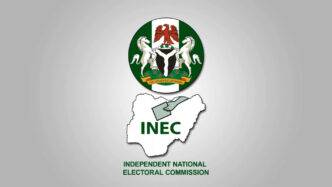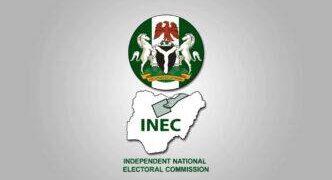In this interview with John Alechenu, Elder statesman, Tanko Yakassai, speaks about the controversy generated by the Muslim/Muslim ticket of the All Progressives Congress, APC, and the danger posed to Nigeria’s democracy by the growing monetization of politics.
There has been an outcry over the decision of the Presidential Candidate of the APC, Asiwaju Ahmed Tinubu, to choose a fellow Muslim, Senator Kashim Shettima, as his running mate. Some have expressed fears that the decision could further polarize the country.
Do you think these fears are justified?
No, the fear is not justified. What do you think is the percentage of Christians in the North when compared to Muslims? There are six Muslim majority states in the North-Kano, Jigawa, Sokoto, Katsina, Zamfara and Kebbi states. When you add the population of these states, take it out of the total population of Northern Nigeria, then divide the remaining population in terms of Muslim/Christian dichotomy.
I will tell you my estimates which if anyone so desires, he can go and verify. My guess is that out of the population of the North, Christians will be about anywhere between 30 and 35 per cent. There are 19 states in the North, only one state which is an absolutely Christian majority, which is Benue. Then there are states where the ratio is 65/35 per cent or 60/40 and so on. Only Benue is having about 90 per cent Christian and 5 to 10 per cent Muslims.
Plateau at best; a conservative estimate is 55 per cent Christian, 35 per cent Muslims and others forming the rest. If you go to Bauchi, the figure is more in favour of Muslims, the same in Kaduna, Niger and Kogi states. Not to talk of Borno, Yobe, Adamawa, Gombe and so on. My conservative estimate is 30/70 in favour of Muslims.
If you go to Southern Nigeria, my conservative estimate is 30 per cent Muslim, 70 per cent Christian. So, in the entire population of Nigeria, 70 in the South and 30 in the North, now take the whole country, Tinubu from the South-West or let’s say a minority from the South if you’re looking at religion as the factor.
Muslims are more than 30 per cent in the South, if you look at it closely. They are the majority in Lagos, Oyo, and Ogun states. If you take it at even conservative estimate for the entire South, 30/70, now you compare the Southern 30 per cent, you have a minority Muslim from the South and the minority Christian from the North put together, you cannot get majority votes.
But in Nigeria, it is only now that people are looking at this in terms of Christian/Muslim. If you look at states where Christians are in the majority, take Plateau for example, they are always Christian/Christian. The Governor is Christian, his Deputy is Christian but if you go to the South, even the only place where Muslims produce Governors are Oyo and Lagos; even there most times you get Christians as deputies. By these rough estimates, Southern Muslim/Northern Christian ticket cannot win the Presidential election in Nigeria speaking practically.
During the First and Second republics which you were a part of, adherents of the two major faiths were given a sense of belonging at the national level. What are your thoughts about the argument that the way the President Muhammadu Buhari-led APC administration has governed is responsible for the fears being expressed by a cross section of Nigerians?
We are faced with a new reality; people are going to cast their votes. Do you see a majority Muslim Nigerians voting for a Christian Minority northerner and a Southern Minority Muslim ticket?
It is unlikely. When Buhari came in 2014/2015, northerners and southerners came together to say he was the one. Remember, I came out and cautioned Nigerians, I said clearly that Buhari was not competent, that he has no capacity to govern. I was lucky at the time otherwise I would have been killed by Buhari die-hards.
By divine intervention, a lot of people now are wiser. A lot of people who believed then that Buhari was the right person at that time now know that he is not. When you come to talk of elections, my experience is that it’s the Christians who are raising this issue today, not Muslims. There are many states in Nigeria in the North and in the South where you have a Christian Governor and a Christian deputy. Nobody has ever raised issue with that. Now that this is becoming a problem, it is because of the mischief of certain individuals or their shortsightedness. If they didn’t do it wouldn’t be a problem today.
Would you say glaring monetization of our electoral system, which has seen some political parties selling Presidential nomination forms for as high as N100 million is healthy for the development of our democracy?
Certainly not, the way money is being elevated in our democratic process, I’m afraid we are gradually making it impossible for Nigerians who have something to offer in terms of leadership but have no money to join the political arena. There is a limit to what people can tolerate in this country.
My fear is that if we continue like this, I feel-I don’t pray that we create a situation where the military will attempt to return to further disrupt the system-God forbid. All this money politics was brought to the fore by successive military regimes. It was not like this before. By the time Shehu Shagari was elected as president of this country, I was a founding member of the defunct National Party of Nigeria, NPN.
I was a member of the party’s National Executive Committee; I have a fair knowledge of how things were done. I was a member of the campaign council; I was deputy chairman of the party in Kano State at that time. I was right inside the thick of the action; I can tell you when we were campaigning for Shagari to become president, and he had no money to buy return tickets to visit his home state Sokoto after each campaign. He never asked for it but we knew as members of the party that he didn’t have it, so we decided to buy tickets for him and one of his close aides, one Isa, to go and return from Sokoto each time they needed to.
Neither Rimi nor Sabo Bakin Zuwo had money to run for elections at the time they won. I can say the same for most of the governors back then, the party and the people of the various states saw their capacity that was the main consideration not how much they had in their bank accounts. It is not the case anymore, sadly.
What in your view is responsible for the obvious desperation among our later day politicians for public office?
Money! In Nigeria today, the amount of money in your pocket will determine which office you aspire for. If you have enough to make you win the nomination as councillor, Chairman, member of the State or National Assembly, Governor or President, that is what you go for.
Even Buhari was said to have no money I don’t know how true, but I know how many rich people contributed huge amounts of money for him in 2014 and I asked a member of his party one day whether he paid all the money donated to him for the election into the party’s coffers for the campaigns. He said no, never. All the contributions made to Buhari were kept by Buhari not the party. I pray there will be some evidence to the contrary.
What can you say about the clamour for party supremacy? With happenings today, do you think our political parties are returning to this era where it can truly be supreme?
I’m afraid, they are not. What we have today is a situation where governors because of their access to huge public funds control everything. They decide who becomes what; money decides virtually everything these days, why do you think Tinubu and Atiku emerged as candidates of the two major parties?
Now, even if the money that will be required for the election is legitimate, I’m telling you what happened during the second Republic. Only two weeks ago, when Tinubu decided to pick Shettima as his running mate, I read from the newspapers that governors teamed up and sent a delegation to Buhari and I suspect they wanted Buhari to facilitate a change.
Most of the other parties wanted the running mates to be chosen from among their ranks. This is something which cannot last in this country. Governors now decide who should be a councillor, council chairman, Senators, House of Representative members. This is very dangerous because the voice of ordinary citizens is becoming extinct in the nomination process.
The 36 state governors decide the fate of Nigerians when it comes to elections; this is not how democracy is designed to work. A time will come in this country when Nigerians will say enough is enough.(Vanguard)

















